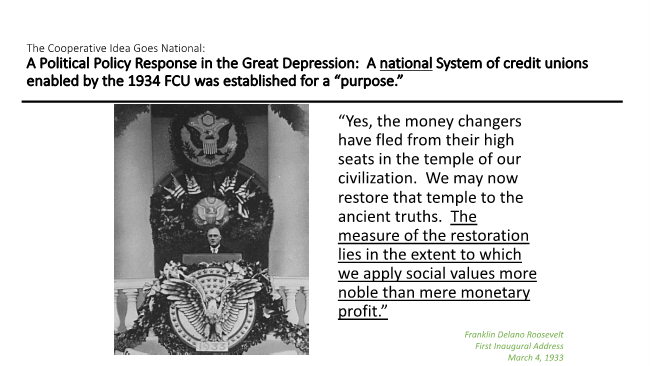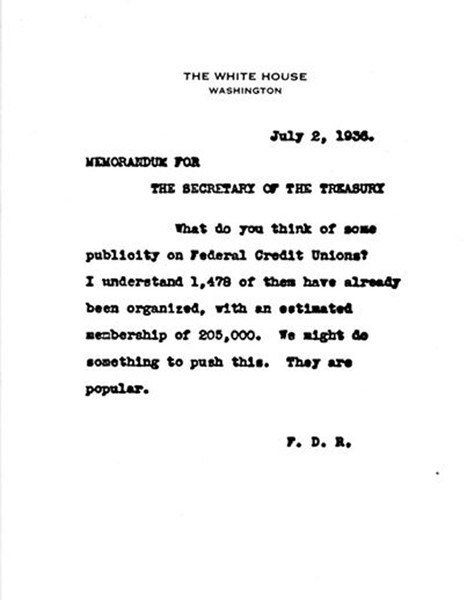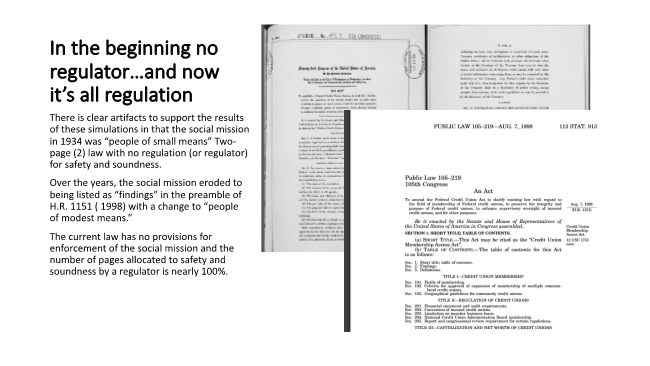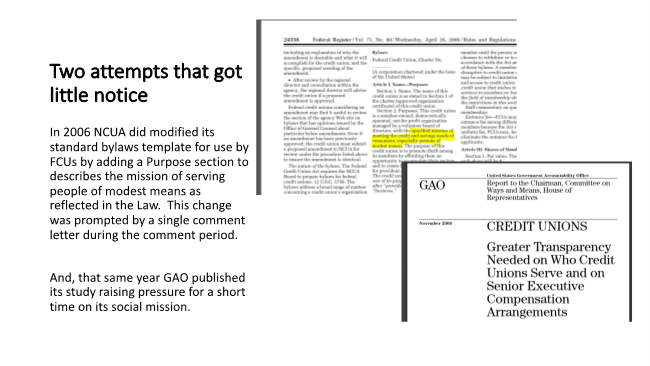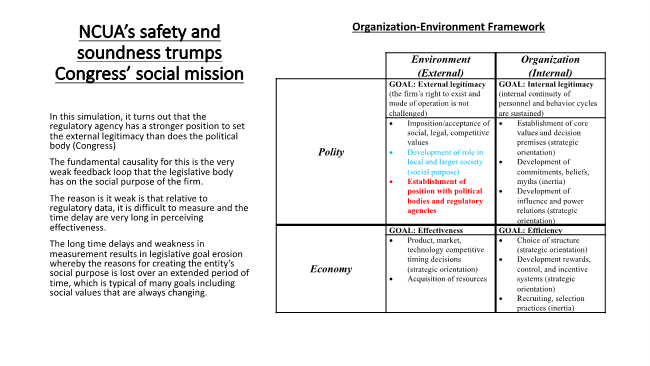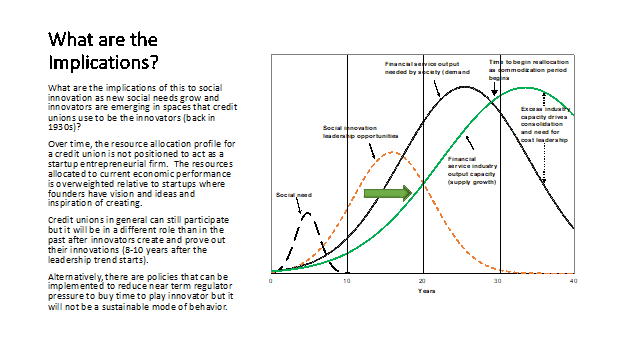In March 2014 before Jim Blaine laid down his sword, err pen, he wrote about the demise of small credit unions. In the blog Clubbing Baby Seals, he used numbers to describe this decline concluding: “We’re in the midst of a “CU ecological” meltdown.” And the cooperative climate has only gotten hotter since.
The Less than $10 Million Segment Trends
The starting point in Jim’s analysis was ten years earlier in 2004 when there were 4,255 credit unions under $10 million. At his writing, the total had fallen by half. I updated his numbers for the most recent decade, 2010 through 2020, which show a continuing decline of the under $10 million segment from 2,908 (41% of cu’s) to 1,179 (23% of cu’s)—a 60% drop.
Many would react to these trends with a shrug: “They are what they are. This is just the marketplace at work. These credit unions often underperform industry averages, do not provide a wide range of services, and members can find better deals elsewhere. Besides larger credit unions continue to add members and grow. These organizations are not significant to carrying out the cooperative mission.”
Why Credit Unions Should Be Concerned With this Trend
This trend matters because of its impact on the system’s future in two respects.
- All credit unions start small. Every credit union operating today was organized with assets in the hundreds or thousands of dollars. From these small seeds large oaks can grow. While all credit unions under $100 million show declines in charter numbers, segments above this amount have added 351 to their number in the same decade. All emerged from the smaller asset segments. For the largest category, greater than $1 billion in assets, the count has gone from 167 in 2010, to more than 375 today. Without seeds, the system will eventually run out of crops to harvest.
- The traditional interpretation of the decline is incomplete. Credit unions from the very beginning have started and then faltered. Most that do not sustain operations are small. Since FOM changes in the 1980’s, the vast majority of closed charters merge with other credit unions.
In 1978 when NCUA published the ratio for the FCU survival rate–number of active charters divided by number of charters issued–the percentage was 55%. That was after 44 years of operations.
Today that ratio is 13%. (3,185 active/24,925 FCU’s chartered). However, the reason for this dramatic decline in sustainability is not that small credit unions cannot survive.
The Federal Regulator’s About Face
In every year beginning in 1934 (except three war years) until 1971, the number of new FCU charters granted always exceeded the number cancelled. In that year, FCU’s were required to qualify for NCUSIF insurance. In 1978 NCUA became an independent agency.
In the same length of 44 years of NCUA’s oversight, the number of cancelled charters has exceeded new startups every year. The loss of just federal charters during NCUA’s tenure as an independent agency totals 9,865—from 13,050 (in 1978) to 3,185 (2020).
The primary reason for the decline of almost 10,000 active federal credit unions is that new charters have become virtually impossible to attain. They have averaged fewer than 10 per year in this century, and only 2.5 in the last decade.
The possibility for groups of citizens to form and control their own democratically governed financial entity has been effectively extinguished by the very organization charged with overseeing the cooperative system’s safety and soundness.
So What?
With new entrants effectively turned away, the industry’s structure will inevitably become more consolidated in much larger credit unions. The diversity in credit union charter size is being eliminated.
Some would opine, “so what?” Members continue to join, and the industry is financially strong and independent of sponsors. This is the natural outcome of any business in a competitive market economy.
Punching Above Their Weight
Blaine’s concern about the demise of smaller credit unions was summarized as: Small credit unions “punch well above their weight” in terms of member impact and community importance. Every credit union was created for a purpose, rarely did that original purpose have anything to do with ‘growth’”.
He calls out the organizing motivations for a cooperative charter: persons with a common interest getting together to improve their local circumstances and opportunity. Members then and today care most about the service they receive.
A credit union’s asset ranking, number of branches, surcharge free ATM’s or even its multiple channels do not create loyalty if an institution cannot respond to individual and local circumstances. That is the key factor in small credit union success.
The Democratization of Financial Opportunity
Credit unions’ democratic character was created from a fabric of relationships and community support. These local origins were their source of political support. Even though banks have opposed credit unions from the beginning, they have been unable to block their efforts to expand member services.
“Punching above their weight” is illustrated most recently by the quickness of Congress to overturn the Supreme Court’s interpretation of the Federal Credit Union act in 1998 limiting common bond to a single group. In just months, the Credit Union Membership Access Act was passed approving the field of membership interpretation NCUA authored in 1983.
But that success was over two decades ago. Do credit unions conceived in earlier eras still have the same political weight today? Have the growth ambitions of some via “voluntary” mergers and bank purchases raised issues of both member and public support for a less distinctive cooperative charter?
Can Small be Big Again?
I do not know what the future will bring. Will ever-larger credit unions be increasingly viewed as just another impersonal financial option, like a bank? Will the tax exemption survive the expansions of markets and scattering of local attention and knowledge?
Will the goodwill so critical in any industry’s ongoing success wither away as the seed corn for its future is no longer replenished? Or will credit union leaders see this declining trend as a priority and provide support comparable to the $100 million goal of CUNA’s Open Your Eyes marketing campaign?
Renewal efforts are underway. Can the initiatives to repurpose charters with new human capital be proven out? Will the efforts to create more service center options via CUSO’s succeed? Can the charter process be assigned to the regions so applicants are supported positively and quickly?
Two factors suggest this trend can be addressed. The places of economic disparities and need are as numerous now as any time in our history. The human spirit of solving problems and the values of cooperatives align with many seeking to bring change for a more equitable America.

